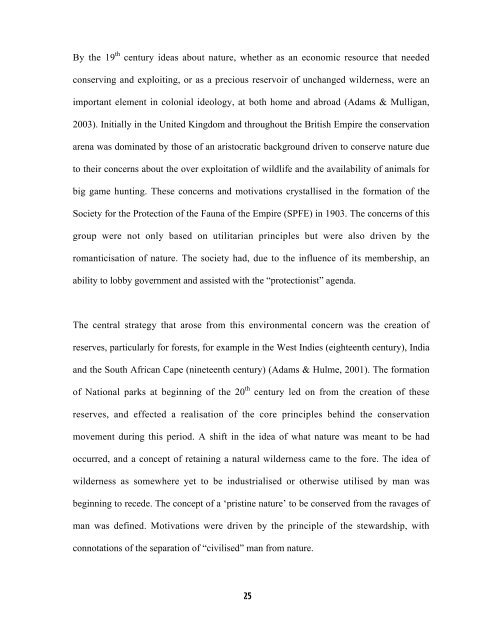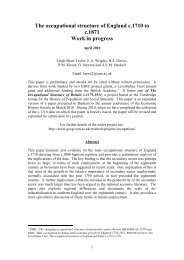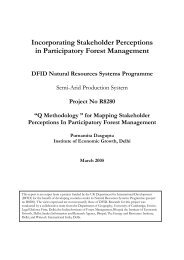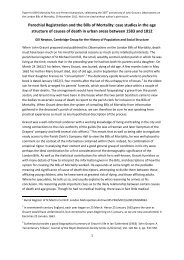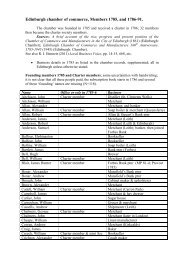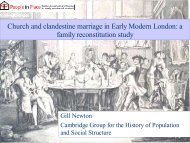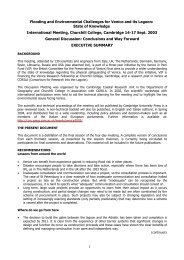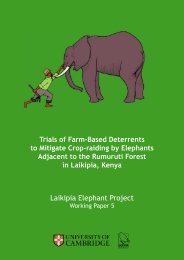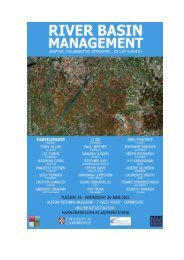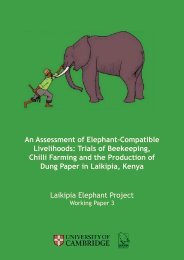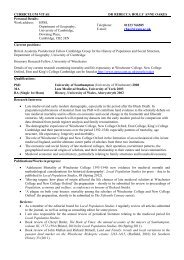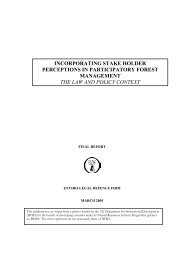Rob Small's Masters Thesis: Uptake and the success of insect ...
Rob Small's Masters Thesis: Uptake and the success of insect ...
Rob Small's Masters Thesis: Uptake and the success of insect ...
You also want an ePaper? Increase the reach of your titles
YUMPU automatically turns print PDFs into web optimized ePapers that Google loves.
By <strong>the</strong> 19 th century ideas about nature, whe<strong>the</strong>r as an economic resource that needed<br />
conserving <strong>and</strong> exploiting, or as a precious reservoir <strong>of</strong> unchanged wilderness, were an<br />
important element in colonial ideology, at both home <strong>and</strong> abroad (Adams & Mulligan,<br />
2003). Initially in <strong>the</strong> United Kingdom <strong>and</strong> throughout <strong>the</strong> British Empire <strong>the</strong> conservation<br />
arena was dominated by those <strong>of</strong> an aristocratic background driven to conserve nature due<br />
to <strong>the</strong>ir concerns about <strong>the</strong> over exploitation <strong>of</strong> wildlife <strong>and</strong> <strong>the</strong> availability <strong>of</strong> animals for<br />
big game hunting. These concerns <strong>and</strong> motivations crystallised in <strong>the</strong> formation <strong>of</strong> <strong>the</strong><br />
Society for <strong>the</strong> Protection <strong>of</strong> <strong>the</strong> Fauna <strong>of</strong> <strong>the</strong> Empire (SPFE) in 1903. The concerns <strong>of</strong> this<br />
group were not only based on utilitarian principles but were also driven by <strong>the</strong><br />
romanticisation <strong>of</strong> nature. The society had, due to <strong>the</strong> influence <strong>of</strong> its membership, an<br />
ability to lobby government <strong>and</strong> assisted with <strong>the</strong> “protectionist” agenda.<br />
The central strategy that arose from this environmental concern was <strong>the</strong> creation <strong>of</strong><br />
reserves, particularly for forests, for example in <strong>the</strong> West Indies (eighteenth century), India<br />
<strong>and</strong> <strong>the</strong> South African Cape (nineteenth century) (Adams & Hulme, 2001). The formation<br />
<strong>of</strong> National parks at beginning <strong>of</strong> <strong>the</strong> 20 th century led on from <strong>the</strong> creation <strong>of</strong> <strong>the</strong>se<br />
reserves, <strong>and</strong> effected a realisation <strong>of</strong> <strong>the</strong> core principles behind <strong>the</strong> conservation<br />
movement during this period. A shift in <strong>the</strong> idea <strong>of</strong> what nature was meant to be had<br />
occurred, <strong>and</strong> a concept <strong>of</strong> retaining a natural wilderness came to <strong>the</strong> fore. The idea <strong>of</strong><br />
wilderness as somewhere yet to be industrialised or o<strong>the</strong>rwise utilised by man was<br />
beginning to recede. The concept <strong>of</strong> a ‘pristine nature’ to be conserved from <strong>the</strong> ravages <strong>of</strong><br />
man was defined. Motivations were driven by <strong>the</strong> principle <strong>of</strong> <strong>the</strong> stewardship, with<br />
connotations <strong>of</strong> <strong>the</strong> separation <strong>of</strong> “civilised” man from nature.<br />
25


